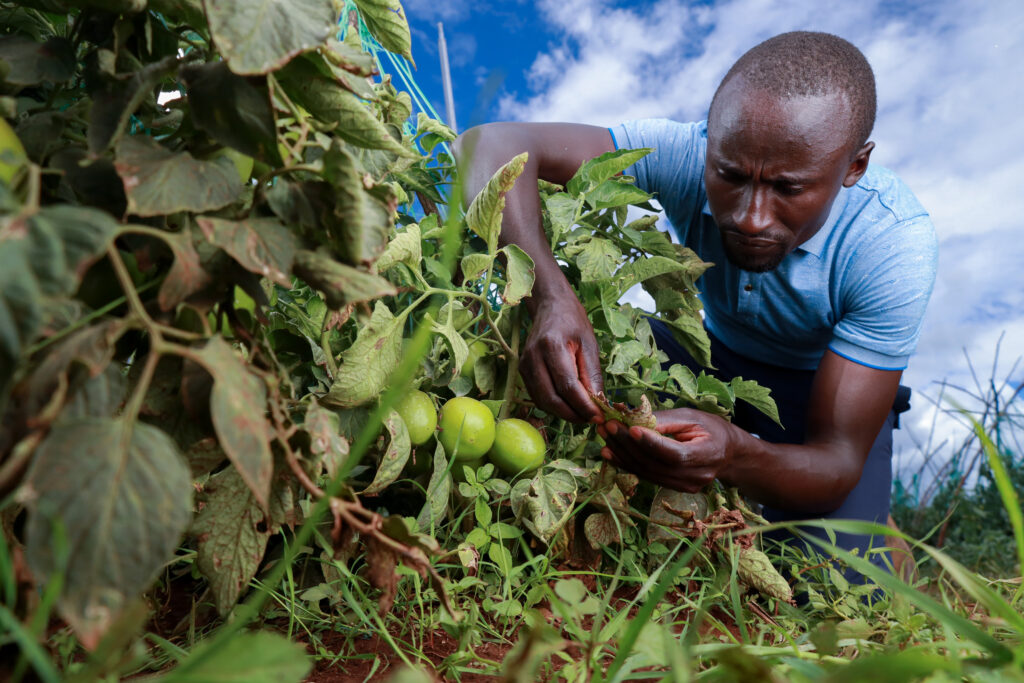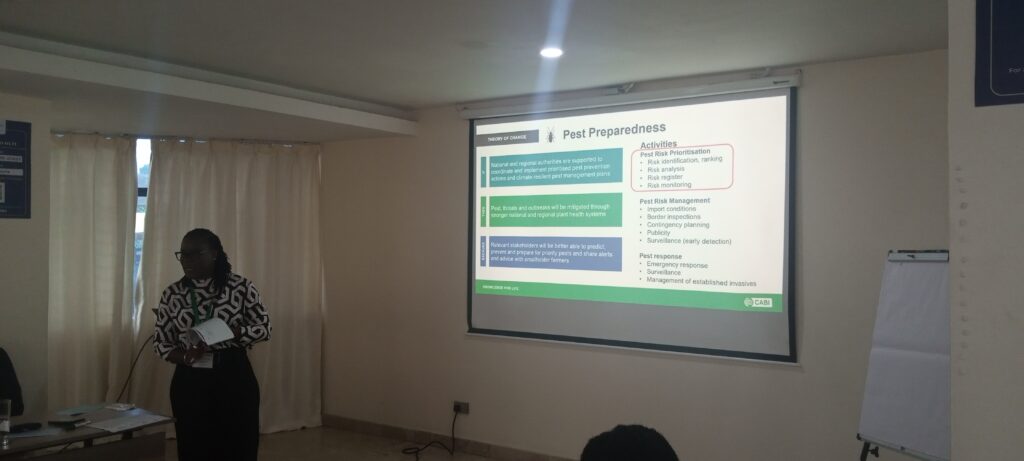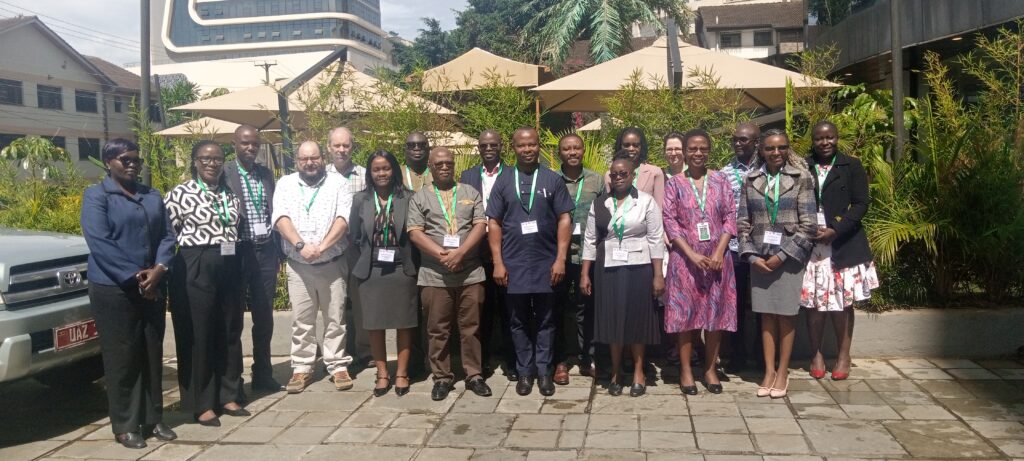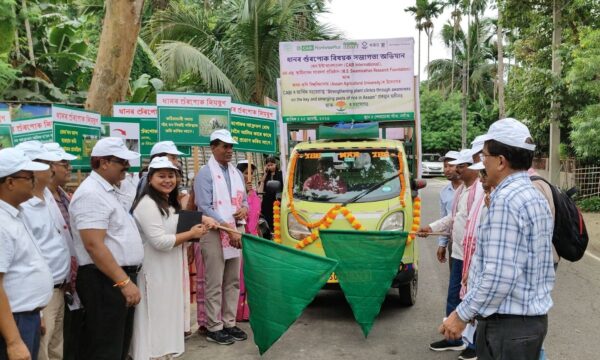Pest risk registers can help to solve problems in agriculture, addressing the growing global threat of plant pests. Moreover, changing weather patterns, led by rising temperatures, are causing them to reproduce faster and expand into new regions. In addition, global trade and increased movement of people are accelerating the spread of pests across borders. These combined pressures are leading to increased pest invasions, which contribute to substantial crop losses. They pose a threat to food security, curtail trade in agricultural commodities and place even greater pressure on smallholder farmers to generate incomes.
However, solutions are at hand. Pest risk registers, for example, enable authorities to monitor prioritized plant pest risks and prepare. This includes contingency plans to prevent, eradicate and contain their spread. Nevertheless, the development and implementation of registers can also create challenges.

In this blog, we examine how diverse perspectives from Ghana, Kenya, Zambia, and the UK are helping to create robust pest risk registers. We look at a pest risk register workshop that took place in Nairobi, Kenya, this year – successes, challenges, and next steps
How does CABI develop pest risk registers?
CABI’s horizon scanning and pest risk register process identifies the pests that are most likely to invade a country, region or an area within a country. They also show which will have a major economic impact. Specifically, the pest risk register collates risks. This enables committees or working groups to identify which pests to monitor and manage immediate risks with limited resources.

The use of pest risk registers allows National Plant Protection Organizations (NPPOs) to take targeted action and early response. With registers, NPPOs can manage the highest pest risks, prioritizing efforts to control the most significant threats to crops. In addition, by assessing, predicting and ranking the risks associated with different plant pests and diseases, crop damage and economic losses can be averted. Moreover, continuous horizon scanning helps to keep the registers regularly updated. This ensures the NPPO has in place the necessary information and effective decision-making on future potential pest risks.
PlantwisePlus – working in partnership with NPPOs
Since 2023, PlantwisePlus has been working with NPPOs across Africa, including:
- Plant Protection and Regulatory Services Directorate (PPRSD) in Ghana
- Kenya Plant Health Inspectorate Service (KEPHIS) in Kenya
- Plant Quarantine and Phytosanitary Service (PQPS) in Zambia
In each participating country, the programme has helped to set up horizon scanning workshops to identify pest risks. It has also supported meetings of pest risk register committees and working groups to establish and maintain the registers.
In March 2025, PlantwisePlus organized a review workshop specifically on pest risk registers to jointly consider progress in developing and implementing registers in Ghana, Kenya, and Zambia. In this review workshop, participants shared challenges, experiences and lessons learned during the development of the registers.
The workshop brought together officers from NPPOs in Ghana, Kenya, and Zambia, as well as the UK’s Department for Environment, Food and Rural Affairs (Defra) and PlantwisePlus. Defra is the UK’s NPPO and is a strong proponent of pest risk registers. It has made its own publicly available online. The workshop provided an opportunity for cross-country sharing of opportunities, challenges, and learning in Africa. During the workshop, each country developed a work plan. Defra supported the process and shared the UK’s experience of creating its own pest risk register.

The benefits and successes of pest risk registers
The establishment of pest risk registers has led to several notable successes. NPPOs, for example PPRSD, have improved their operations. They have done this by developing border inspection guides for priority pests identified during the regular register committee meetings. In addition, their use of registers has triggered improved surveillance.
Also, the pest risk registers have improved the technical capacity of NPPO officers. The training of NPPOs’ plant health officers through PlantwisePlus has strengthened their knowledge and skills about previously unknown pests. This helps to prevent the introduction and spread of harmful organisms and safeguard agricultural production, trade, and the environment. In some countries, all quarantine pests and regulated non-quarantine pests are now included in the registers for risk monitoring.
During the review workshop, the NPPOs held country-specific discussions on the anticipated future benefits of pest risk registers. They identified the following:
- Greater efficiencies in pest risk management and preparedness
- Expanded pest risk monitoring capacity within NPPOs
- Improved communication on pest risks
Countries believe that the pest risk register processes can become effective tools for harnessing collaboration among NPPO officers. In particular, they can help them to tackle risks and promote open dialogue between decision-makers and external stakeholders.
Overcoming the hurdles of establishing pest risk registers
Workshop participants identified the most common challenges they face when establishing pest risk registers. Broadly, three categories of challenge emerged:
- Personnel
- Technology
- External factors
Countries indicated that the initial stages of establishing registers can be challenging. Specifically, officers experienced a steep learning curve that requires a continuous investment of time and energy.
These challenges are further exacerbated by external factors. These include slow internet connections and a lack of proper digital equipment. Moreover, resources are generally directed at pests that can hinder a country’s access to lucrative export markets. They do not necessarily focus on risks that are of importance domestically.
That said, countries are addressing these challenges. For instance, Ghana’s NPPO Director nominated staff to a multi-institutional phytosanitary working group. It developed clear terms of reference that outline responsibilities, including establishing and implementing a quarantine pest risk register.
In Kenya, KEPHIS’s pest risk register officers started to bring to management’s attention the importance of registers on a more regular basis. They highlighted their benefits, with the aim of integrating register activities into their core responsibilities and performance targets.
Active participation and continuity of tasks within the pest risk register technical working group are important. To ensure participation, Zambia’s NPPO appointed more members to the pest risk register technical working group, including engagement with senior management.
Next steps
Looking ahead, each NPPO will review and implement the proposed plans for the pest risk register work in country. This will include finalizing and publishing the registers for users’ ease of access. Furthermore, officers spearheading the registers will continue to raise awareness about them in their countries, including benefits and uses.
Working with CABI, NPPOs will collaborate to document and publish the lessons learnt, challenges and opportunities from implementing the registers in Ghana, Kenya and Zambia. They will provide useful insights to other countries that plan to establish registers. For sustainability, NPPO officers are working towards integrating the registers into institutional strategic documents and work plans. This will ensure enhanced resource allocation to this process in future.
More like this
Horizon scanning for climate-driven pest threats can prevent biodiversity loss
Pest preparedness – boosting food security, farmer incomes and agricultural trade
PlantwisePlus gratefully acknowledges the financial support of the Directorate-General for International Cooperation, Netherlands (DGIS); European Commission Directorate General for International Partnerships (INTPA); UK International Development from the UK government; and the Swiss Agency for Development and Cooperation (SDC).
Related News & Blogs
5 ways digital agriculture tools are transforming pest management
Finding accurate, locally contextualised information at the right time is essential for tackling crop pests. Digital agriculture tools are helping farmers and those who advise them by putting expert knowledge directly in their hands. 1. Early pest diag…
12 February 2026




